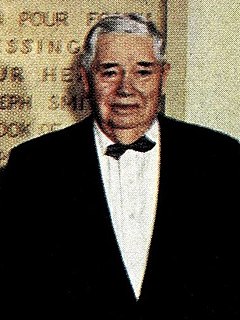A Quote by Vincent de Paul
[W]ork at ridding yourself of the esteem you have had up to now for the glitter and sparkle of virtue and the vain applause of the world, which Our Lord so assiduously avoided and so often recommends us to shun, and that you labor in earnest to acquire true and solid virtues.
Related Quotes
Leave those vain moralists, my friend, and return to the depth of your soul: that is where you will always rediscover the source of the sacred fire which so often inflamed us with love of the sublime virtues; that is where you will see the eternal image of true beauty, the contemplation of which inspires us with a holy enthusiasm.
If we keep the path of virtue undefiled through devout and true knowledge, and do not deviate to either side, we will experience the advent of God revealed to us because of our dispassion. For 'I will sing a psalm and in a pure path I will understand when Thou wilt come to me' (cf. Ps. 101:1-2). The psalm stands for virtuous conduct; understanding indicates the spiritual knowledge, gained through virtue, by means of which we perceive God's advent, when we wait for the Lord vigilant in the virtues.
Today Christmas has become a commercial celebration, whose bright lights hide the mystery of God’s humility, which in turn calls us to humility and simplicity. Let us ask the Lord to help us see through the superficial glitter of this season, and to discover behind it the child in the stable in Bethlehem, so as to find true joy and true light.
I am persuaded, from all the facts that have come to me, that it would have been possible, if we had functioned as the Lord intended us to function, if we had paid our tithes and our offerings as the Lord intended us to pay them, we might have gone on without one dollar from our federal government. And has it ever occurred to you what a mighty influence we should have exercised for good and for respect and for all of the virtues that we have been taught, and that God has commanded us to exercise and cultivate and practice, if we had just followed along what he has asked us to do?
Belonging is the innate human desire to be part of something larger than us. Because this yearning is so primal, we often try to acquire it by fitting in and by seeking approval, which are not only hollow substitutes for belonging, but often barriers to it. Because true belonging only happens when we present our authentic, imperfect selves to the world, our sense of belonging can never be greater than our level of self-acceptance.
We are often hindered from giving up our treasures to the Lord out of fear for their safety; this is especially true when those treasures are loved relatives and friends. But we need have no such fears. Our Lord came not to destroy but to save. Everything is safe which we commit to Him, and nothing is really safe which is not so committed.
In our world of big names, curiously, our true heroes tend to be anonymous. In this life of illusion and quasi-illusion, the person of solid virtues who can be admired for something more substantial than his well-knownness often proves to be the unsung hero: the teacher, the nurse, the mother, the honest cop, the hard worker at lonely, underpaid, unglamorous, unpublicized jobs.
We acquire the love of people who, being in our proximity, are presumed to know us; and we receive reputation or celebrity, from such as are not personally acquainted with us. Merit secures to us the regard of our honest neighbors, and good fortune that of the public. Esteem is the harvest of a whole life spent in usefulness; but reputation is often bestowed upon a chance action, and depends most on success.
After each failure, ask forgiveness, pick yourself up, and try again. Very often what God first helps us toward is not the virtue itself but just this power of always trying again. For however important chastity (or courage, or truthfulness, or any other virtue) may be, this process trains us in habits of the soul which are more important still. It cures our illusions about ourselves and teaches us to depend on God. We learn, on the one hand, that we cannot trust ourselves even in our best moments, and, on the other, that we need not despair even in our worst, for our failures are forgiven.



































